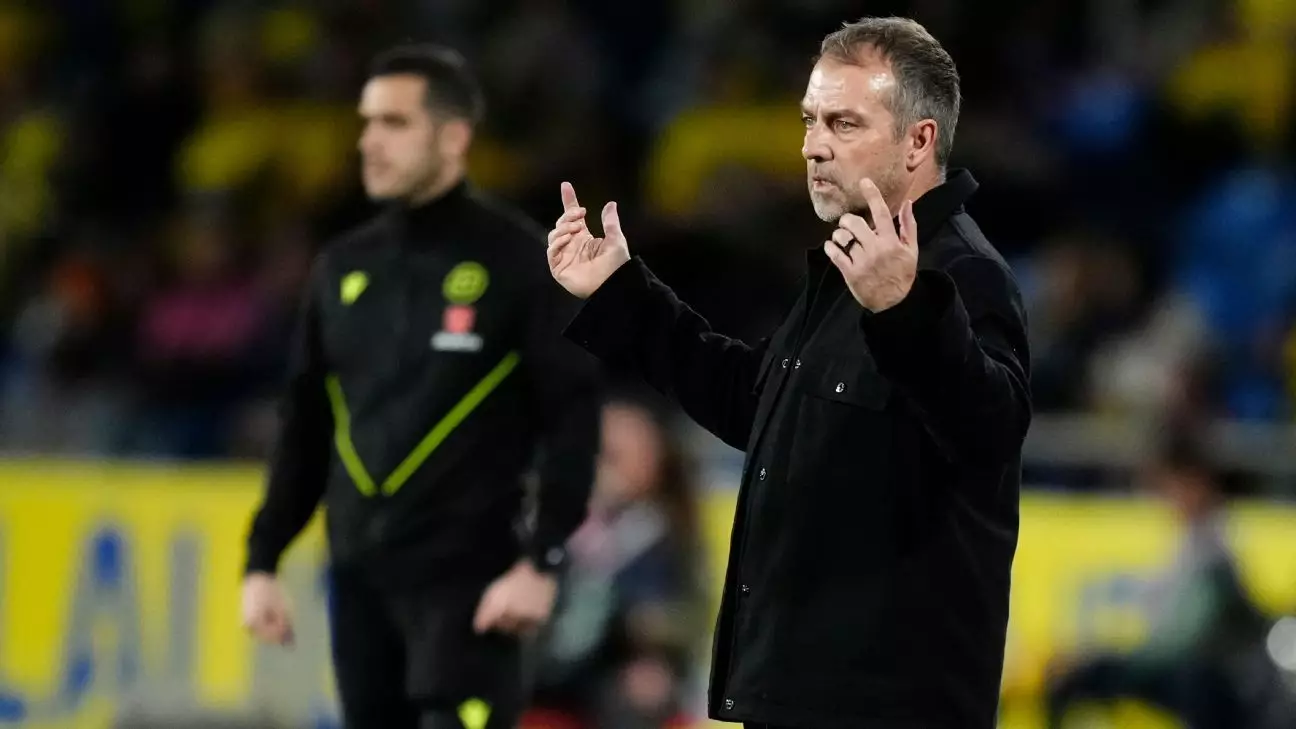Despite securing a 2-0 victory against Las Palmas that allowed FC Barcelona to reclaim the top spot in LaLiga, head coach Hansi Flick’s assessment of his team’s performance was anything but celebratory. This reflects a nuanced understanding of football management, where results do not necessarily mask underlying issues. Flick underscored the need for significant improvement, stating that his players delivered about “5-10% less” than expected. These words reveal a coach who, rather than resting on laurels, chooses to hold himself and his players to a higher standard.
Winning is crucial, especially within the competitive landscape of Spanish football, but Flick’s insistence on better positioning, passing, and overall efficiency speaks volumes about his coaching philosophy. A coach’s ability to critique performance honestly is ultimately what cultivates a culture of continuous improvement. While Barcelona’s substitutes, Dani Olmo and Ferran Torres, made notable contributions—both finding the back of the net and showcasing depth—Flick was keen to remind players and fans alike that winning should not breed complacency.
The contributions of Dani Olmo and Ferran Torres cannot be overlooked; their performances reflect the potential of Barcelona’s roster. Olmo, recovering from injury, scored his first goal since November, demonstrating his crucial role in the squad. His ability to convert a critical chance illustrates the importance of squad depth, which becomes especially vital during a grueling season. Similarly, Torres, who also scored in the match, exemplifies the kind of bench strength that can turn a game around.
However, one must critically analyze the implications of relying heavily on substitutes. Flick’s reliance on these players to step up could suggest shortcomings in the starting lineup that need addressing. It raises questions about why these players are not starting more regularly and what this implies for team chemistry and consistency. Are the starters underperforming, or are there factors inhibiting a full-strength lineup from thriving? Such debates can lead to both tactical refinements and potential unrest among players vying for starting positions.
As Barcelona prepares for an upcoming clash with Atlético Madrid in the Copa del Rey semifinal, they face a pivotal test. The quick turnaround from league play to cup competitions can expose weaknesses in a team’s strategy, particularly when there isn’t total cohesion across the roster. Barcelona’s recent performance may not inspire confidence heading into a match against a team that has already managed to best them in LaLiga this season.
Winning against Atlético is about more than just advancing; it involves restoring a sense of dominance on the pitch. Flick’s challenge will lie in translating the necessary improvements he called for into action within an even more high-stakes atmosphere, particularly against a rival that has proven competitive this season. The desire for immediate tactical evolution will be critical if Barça hopes to fend off both Atlético and Real Madrid, who are right on their heels in the title race.
In the grand scheme of professional football, particularly in leagues as competent as LaLiga, results alone cannot define success. Flick’s self-awareness and focus on the journey of continual improvement resonate with fans and analysts alike. While the three crucial points secured against Las Palmas are significant, it’s the manner in which the team evolves—addressing weaknesses, adapting tactics, and fostering player development—that will determine Barcelona’s trajectory.
As the matches pile up and the pressure rises, the ability to balance immediate objectives with long-term aspirations becomes crucial. With the season nearing its climax, the lessons learned from every match, including those frustratingly subpar performances, could lay the groundwork for a compelling narrative of transformation. Should Barcelona channel Flick’s criticism into motivation, the team could emerge not only as champions of this season but as a more refined and formidable unit for the future.

